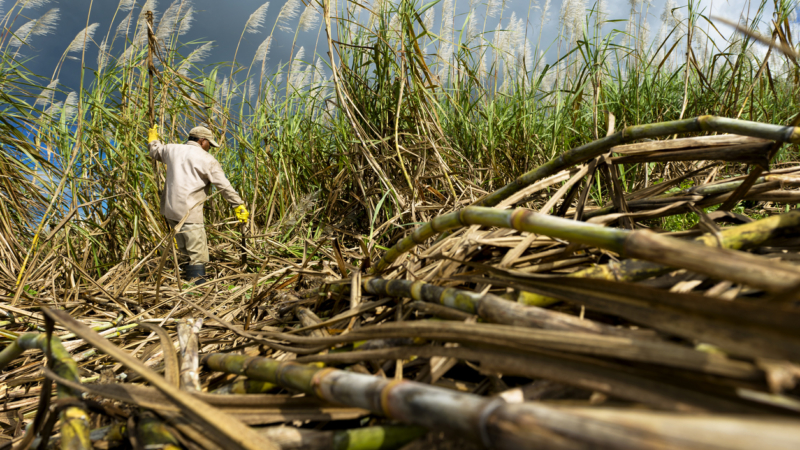U.S. Sugar Market a Beacon of Hope for Farmers in Developing Countries
America’s no-cost sugar policy ensures that American consumers and manufacturers have a steady supply of high-quality, affordable sugar. But the positive impact extends far beyond our shores.
Sugar farmers from 38 developing countries in Africa, Asia and Latin America rely on the guaranteed market access they have in the United States to sustain their industries. The U.S. market enables them to recoup a fair price – something they cannot find in the subsidy-filled world market, where surpluses continue to build and prices average less than half the cost of producing sugar.
Mauritius, a small island nation in the Indian Ocean just off Africa’s southeast coast, is a great example. Sugar is an essential part of the Mauritian economy.
On paper, Mauritius has done everything right. Their industry strived to become more efficient to survive a market dominated by global heavyweights and billions in foreign subsidies.
Mauritian cane farmers invested in sustainable practices. More than 3,000 small-scale growers in Mauritius attained Fairtrade certification. The industry built refineries and diversified into value-added products.
It even began to turn a sugarcane byproduct into energy, accounting for 16 percent of the island’s power generation.
But it wasn’t enough.
As depressed global sugar prices impact their already-thin profit margins, Mauritian farmers are abandoning the crop in droves. The number of growers in Mauritius has decreased from some 26,000 in 2006 to a mere 12,000 farmers today.
These declining numbers represent not only the loss of jobs but also the deterioration of the communities that rely on the socioeconomic benefits brought in by sugar production.
The Minister of Agro-Industry and Food Security, Mahen Seeruttun, addressed the Mauritius National Assembly in June 2019 regarding the tough times faced by the sugar industry.
“The primary cause of this situation is due to continuous decline in the world price of sugar arising from excess supply on the world market, taking into consideration overproduction in EU, India, Brazil, Thailand and other countries,” he said.
Mauritius isn’t alone.
Sugar producers in Barbados, Belize, Dominican Republic, Fiji, Guyana, Jamaica, Malawi, Mauritius, Mozambique, Panama, Philippines, Eswatini and Zimbabwe – collectively represented by the International Sugar Trade Coalition (ISTC) – are huge proponents for a U.S. sugar policy that gives them a fighting chance.
“For some of the world’s poorest economies, U.S. sugar policy is a lifeline that supports the livelihood of thousands of sugar producers,” said Paul Ryberg, President of ISTC.
U.S. sugar policy exists as a direct response to massive subsidization in Brazil, India, Thailand and other large exporting nations. Subsidies in these countries – which include direct payments to growers, loans coupled with debt forgiveness, and government mandated purchases at government set prices – have insulated big exporters from low prices and created a 50-million-metric-ton global surplus.
It’s a system that rewards bad actors. And, in many developing nations where sugar is a keystone of their economy, it’s had a devastating impact.
In Jamaica, it is estimated that nearly 10 percent of the population depends either directly or indirectly on the sugar industry. In some areas of the country, sugar is the only economic driver.
But production has fallen from more than 500,000 tons from the industry’s heyday in 1965 to barely 80,000 tons.
Jamaican Agriculture Minister Audley Shaw has said that this is “perhaps the most challenging period in the industry’s history.”
Sugar factories across the country have ceased operations. The Golden Grove Sugar Factory in eastern Jamaica is likely to be the next casualty, costing 150 workers their jobs.
For many of the farmers who previously supplied these factories, it may be quite literally the end of the road as they face the high transportation costs of selling their crops to another mill.
Sugar producers in Jamaica, however, might consider themselves lucky when compared to their neighbors St. Kitts and Nevis. Low prices, unfair competition and limited markets bankrupted their sugar industries completely.
Unfortunately, the flood of subsidized sugar dumped on the global market will continue to destabilize domestic sugar markets, harm developing nations and push farmers and producers out of work and further into poverty.
And unilaterally eliminating the no-cost U.S. sugar policy would only serve to reward bad actors while harming our most reliable trading partners who are working to innovate and improve.
Ryberg and the members of the ISTC agree: “Ending the U.S. sugar program would benefit a handful of agricultural superpowers, while punishing struggling sugar producers in developing countries around the world.”
That’s why the U.S. sugar industry advocates for an immediate cease-fire of all sugar subsidies.
Until then, we will continue to support our foreign partners who are investing in their communities and striving for sustainability.



